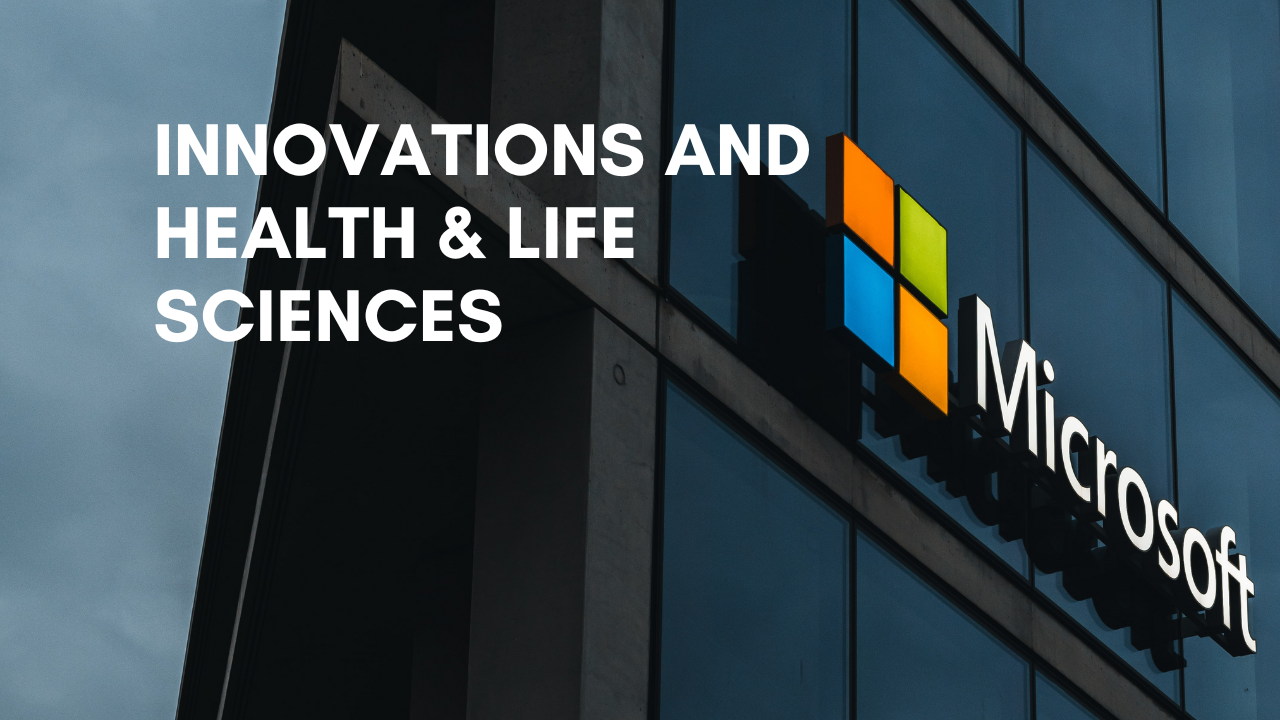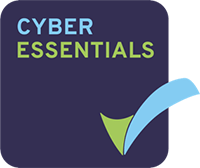According to a recent Frost & Sullivan report, “Digital Investments in Healthcare Through COVID-19 and Beyond,” most healthcare organizations are in some stage of digital transformation, either on their accord or spurred by the immense changes in healthcare delivery during the pandemic. Additionally, Rock Health notes that at the end of June 2021, funding for health tech startups surpassed all of 2020. Putting these two mega trends together generates significant opportunities for innovators and early-stage companies to respond with new and sometimes, groundbreaking solutions. As an innovator, learn more about how we help B2B startups grow and scale through the Microsoft for Startups program.
Increasingly, health tech startups are aligning themselves with Microsoft, bringing innovation, diverse perspectives, and digital transformation to the healthcare industry. These early-stage companies are eager to solve problems, fill existing gaps and improve access and quality of healthcare. Healthcare startups are choosing to build their solutions on Azure for a variety of reasons, including being able to accelerate development of their solutions by leveraging Microsoft’s investments throughout the healthcare ecosystem—payor, provider, and life sciences. From the launch of the Microsoft Cloud for Healthcare to the planned acquisition of Nuance, to the continued commitment to interoperability, startups are taking note. More and more they are selecting Microsoft as their platform and Microsoft for Startups program as their path to accelerated growth and scale. Additionally, startups and their enterprise customers value Microsoft cloud services and the security framework that encompasses industry best practices and standards, including the ISO 27000 family of standards, NIST 800, HIPSS, HITRUST, and others. Innovators value our comprehensive compliance offerings, and regular independent audits that are performed by qualified third-party accredited assessors.
Innovating with Microsoft for Startups
Oncospace, a Baltimore-based startup combining radiation oncology with the power of big data, is helping doctors personalize each patient’s radiation treatment. Their AI-based platform enables personalization of each patient’s treatment, with the goal of minimizing side effects and maintaining a high quality of life. “We deploy products on the Azure Cloud to securely and efficiently distribute our software to cancer treatment centers worldwide,” noted Praveen Sinha, co-founder and CEO of Oncospace. Additionally, Praveen’s team also has Microsoft’s InnerEye SDK, an open source medical imaging deep learning library developed by Microsoft Research, on their product roadmap, where it will train and deploy models on Azure Machine Learning and Azure Stack.
Using Microsoft Computer Vision cognitive services and AI, Vastmindz is changing how vital signs are taken. Currently in use for health and wellness triage, this UK-based company has developed an app that uses your cell phone camera or webcam to take biometrics such as heart rate, respiratory rate, blood oxygenation, blood pressure and stress level, without contact. The technology analyzes subtle color changes in an individual’s skin to extract a rich physiological signal using proprietary software. The team at Vastmindz has built an easy-to-use SDK that enable businesses to integrate this feature within existing applications seamlessly and they plan to blaze a trail that will include distributing their technology with other health technology and medical devices.
Diverse perspectives
Hyro, an early-stage company based in the U.S. and Israel, as well as a Microsoft Partner of the Year for Business Excellence for 2021, is automating key interactions for enterprises with their Adaptive Communications Platform. Beyond traditional conversational AI, Hyro uses natural language and computational linguistics to turn complex content into simple dialogue. Developed as a plug and play platform, Hyro automatically stands up voice assistants, chat solutions, and virtual agents that help companies, including Weill Cornell Medicine, Carroll Property Management and Mercy Health, create stellar customer and patient journeys, grow bottom-line revenue, and reduce support costs by simplifying digital interactions. But innovation isn’t always just about the technology. “It’s mind blowing to me how such a huge player like Microsoft can partner, collaborate and advance startups in such a meaningful way, especially in a domain like healthcare,” commented, Israel Krush, CEO and co-founder of Hyro.
Liz O’Day, PhD, founded Olaris, a Boston-based startup shortly after completing her PhD at Harvard. Building on the research that she conducted during her studies, she and her team are building a platform that uses metabolomics and machine learning to identify “biomarkers of response,” and change how diseases are diagnosed and treated. The algorithms are designed to differentiate drug responders (R) from non-responders (NR). Dr. O’Day’s company are tackling cancer, neurodegenerative disease, immune response and more. While she builds her company, tapping into the Microsoft for Startups program for both technical and business development support, she noted, “I’m a first time, female scientist and youngish CEO, having the Microsoft stamp of approval has been invaluable.”
Warrior Centric Health (WCH) provides US veterans with better and more equitable care. This startup, based in the Baltimore, MD area and established by Ronald Steptoe and Dr. Evelyn Lewis, ensures that providers understand the unique experiences and health histories of military veterans and can more effectively deliver care to former and current service members and their families. While many seek care through the established US Veteran’s Administration and Department of Defense healthcare systems, a vast majority of the Warrior Community use traditional, commercial providers. This is where WCH comes in. Through learning management systems, analytics and other technologies, Ron and his team are deeply invested in improving the responsiveness of health systems to those that have served the US. Ron is an 8th generation military veteran whose family legacy of service to the US dates back to the Revolutionary and Civil Wars. As a high-tech founder who is a former innovations leader at Pfizer, a soldier, a graduate of West Point, and a person of color, Ron has drawn upon his diverse life experience and family legacy to envision WCH having a lasting impact on the nation.
Digital transformation
Lunit, based in South Korea, gets its name from an abbreviation of, “learning unit.” With AI, Lunit is devoted to developing advanced medical image analytics and novel imaging biomarkers using deep learning technology. The company’s goal is to solve some of the most critical issues in cancer care, reduce medical costs and improve patient outcomes. Using the cloud computing power of Microsoft Azure, Lunit’s technology generates location information of detected lesions in the form of heatmaps. It also makes abnormality scores that reflect the probability that the detected lesion is abnormal and needs further investigation by a radiologist. When COVID-19 spanned across the globe, the Lunit team went to work. Because their algorithms had been trained to read x-rays and originally could detect 10 major chest diseases including pneumonia with 97-99 percent accuracy, the Lunit team quickly adapted those algorithms to scan for signs of COVID-19.
Another organization that is transforming imaging technology in healthcare is, Ultromics. Building on a decade of imaging research conducted at Oxford University and in partnership with the NHS, this company specializes in using AI to analyze echocardiograms. Their solution, called EchoGo, provides cloud-based artificial intelligence services to support cardiac imaging diagnosis without variability or need to touch software. Earlier this year, EchoGo Pro, was cleared by the FDA and is now available to clinicians across the U.S. EchoGo Pro was trialed and validated with the Mayo Clinic, improving the diagnostic accuracy of clinicians for Coronary Artery Disease (CAD), the most common form of heart disease and a leading cause of death in the US. More recently, Ultromics has CE Marked EchoGo Core. The clearance came shortly after the company’s endorsement by the NHSx, who recently awarded Ultromics with a grant to fast track its technology across the UK, to improve care delivery of services.
Ready to innovate
Now more than ever, the healthcare industry needs innovative, diverse, and transformative solutions to democratize high-quality healthcare delivery, provide better patient outcomes, and extend both with global scale and cost effectiveness. We are honored that so many of the new generation of innovators trust Microsoft to be their platform partner.
Are you an innovator ready to continue the transformation of health and life sciences? Learn more about the Microsoft for Startups program and how we help B2B startups grow and scale. Delve into learning resources to power your startup with Microsoft and visit Microsoft Cloud for Healthcare to explore the capabilities and learn more.
Source: Microsoft Industry Blogs, published on 26th August, 2021


